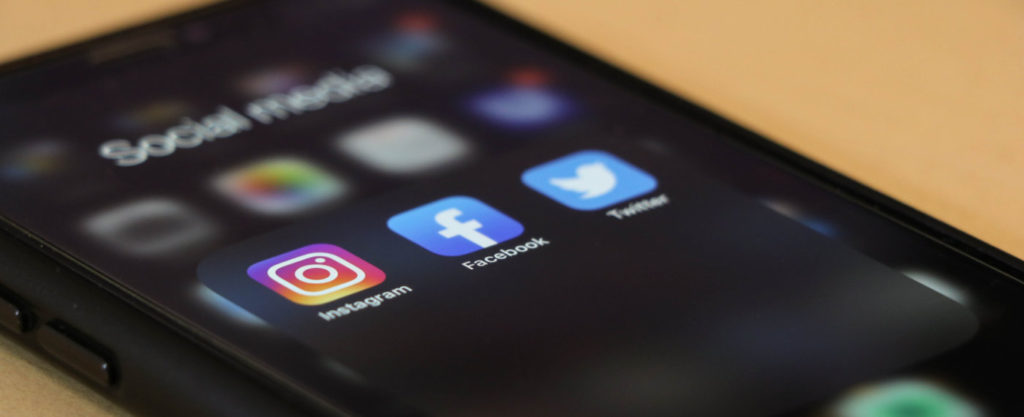Why Instagram Can’t Quite Fill Our Hearts Like God Can

Gabriel Somarriba
In early March, author Leigh Stein, penned an opinion piece for the New York Times titled “The Empty Religions of Instagram.” The article documents the author’s growing realization of how, for many, our Instagram feeds, filled with feel-good, self-care sermons of what she dubbed “the electric church” ring hollow when faced with the tremendous challenges of offline life, such as those caused by the COVID-19 pandemic.
The personal growth influencers, as Stein anoints them, include women like Gwyneth Paltrow, Glennon Doyle, and Brené Brown who serve as Instagram’s non-religious clergy. Stein notes that they offer their devoted followers “permission, validation and community on demand at a time when it’s nearly impossible to share communion in person. We don’t even have to put down our phones.” With twenty-two percent of millennials claiming that they are not affiliated with any specific religion, according to the Pew Research Center, there appears to be a growing need to find a new sense of identity and purpose.
Stein is not talking about actual religious leaders on Instagram but about people who may not be formally affiliated with a religion but whose voices evoke a positive belief system that is held and promoted almost religiously. The church of the Instavangelists “is a blend of left-wing political orthodoxy, intersectional feminism, self-optimization, therapy, wellness, astrology and Dolly Parton.”
Instavangelists like Gabrielle Bernstein (916,000 followers on Instagram) have rebranded the prosperity gospel as manifesting abundance, and she, Ms. Doyle (1.5 million followers), Brené Brown (3.3 million followers) and Gwyneth Paltrow (7.5 million followers) have become the neo-religious leaders of our era.
To be fair, it’s not all virtual junk food for thought. TED Talk veteran Brene Brown, who has a Ph.D. in social work and bestselling books on the important topics of shame and vulnerability, frequently offers excellent nuggets of wisdom for the human soul.
“The brokenhearted are the BRAVEST among us,” Brown shares in a handwritten post-it note on Instagram. “They had the COURAGE to LOVE.” Statements like this have some power to uplift the spirit of any human who is feeling broken—a sentiment as timeless as the Psalms.
Still, if Instagram personalities are becoming, for some followers, the cornerstones of an online New Jerusalem, I am not surprised that Leigh Stein finds herself yearning for something more. Good vibes and you-do-you inspired posts can fall short in answering the tough questions: Why are we here? Why do we suffer? What should we believe in beyond ourselves?
“There is a chasm between the vast scope of our needs and what influencers can provide,” Stein writes. “We’re looking for guidance in the wrong places. Instead of helping us to engage with our most important questions, our screens might be distracting us from them.”
Surviving a pandemic is no easy thing. Stein mentions that she has done so with a combination of “performing the role of tough cookie and shielding myself with cynicism.” However, she has cried only twice since March 2020, when, sharper than a two-edged sword, religion has punctured her little bubble: in particular, when Reverend Raphael Warnock spoke at John Lewis’s funeral and when Garth Brooks sang “Amazing Grace” at the Biden inauguration.
Religion and faith offer many things to the world in scary and perilous times, not least of which are refuge and direction. Persecution from the Roman Empire, the Black Death that wiped out more than half of Europe, and other earth shattering moments in history prove that humanity as a whole and religious believers in particular are no strangers to suffering. However, part of what sustains believers is the knowledge that an all-knowing, all-powerful, and all-loving God holds us and protects us in the palm of His hand. In the Gospel, Jesus tells us not to worry about those who can kill the body but rather those you can kill both the body and soul. COVID-19 may have claimed the lives of more than 500,000 Americans, but it has not killed the souls of millions of Christians who recognize Jesus as their rock and savior.
The pandemic has forced many of us to reexamine our lives and to question why our choices and lifestyles have left us ill prepared to handle this global crisis. Apparently, eating kale daily, laughing at Tik-Tok videos, and partaking in high-intensity workouts— while great—are not enough to fill our hearts and souls.
“I have hardly prayed to God since I was a teenager,” Stein writes, “but the pandemic has cracked open inside me a profound yearning for reverence, humility and awe. I have an overdraft on my outrage account. I want moral authority from someone who isn’t shilling a memoir or calling out her enemies on social media for clout.”
While social media isn’t inherently bad, Stein points out that much of Instagram’s focus is on “our selves” and can fall short of the bigger picture. While self-improvement and the development of our gifts and talents are important goals, it can miss the point if our personal progress is not geared toward the service and betterment of others and a goal higher than ourselves. That doesn’t mean we need to ditch social media, but to find real grounding and connect with others in our community, Stein says, maybe we should dare to step in an actual house of worship as well.
Gabriel Somarriba is a psychologist living in Cleveland, Ohio.



